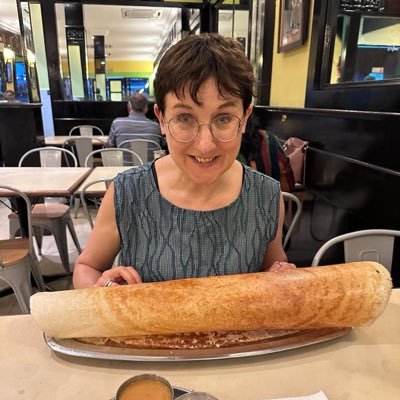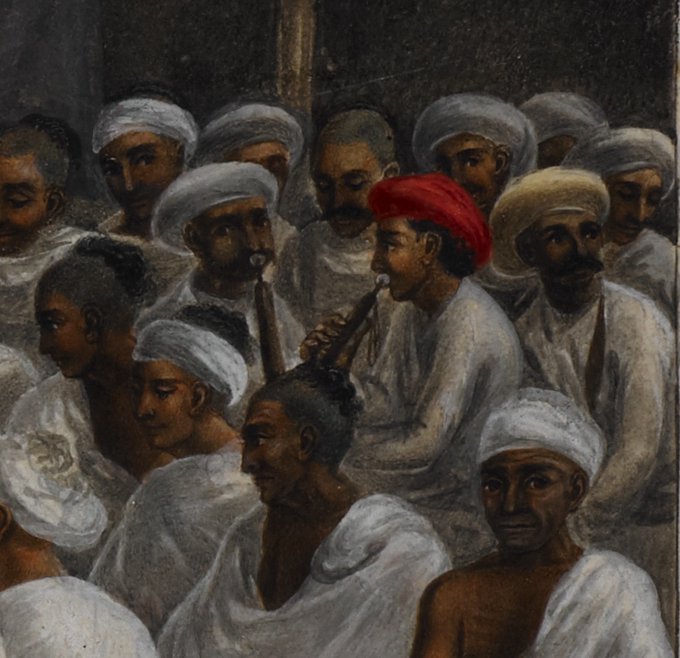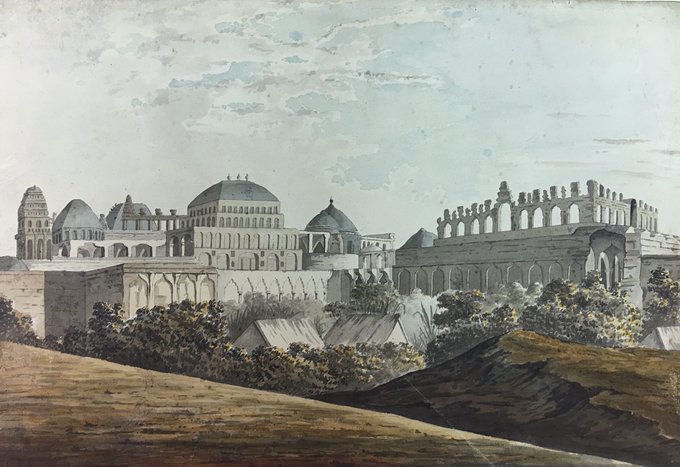Fascinating details in this Durga Puja scene painted by Sevak Ram in around 1807-09. A pair of duelling musicians. A framed landscape above 2 young men's heads. The carefully painted Durga shrine. @britishlibrary Add Or 19 https://t.co/vBrwjUsrxH
Departure and return of Tipu Sultan's hostage sons, as told by British art. Left: Print after Mather Brown dramatising the boys' departure from Srirangapatna, 1792. Right: Needlepoint sampler imagining the boys' return, 1794 (@britishlibrary F855).
What about the mother(s) of the boys? This print of "The Departure of the Sons of Tipoo from the Zenana" (1793) was based on a painting by Henry Singleton, an artist who had never been to India. It is pure fantasy. 3/5
View of Madurai's palace buildings, 1780s, by Elisha Trapaud (@britishlibrary WD4561). Some of these structures are still standing and can be visited today. https://t.co/3juik3Ma5K
Nautch girls at Varanasi, c.1830. Lithograph in James Prinsep's Benares Illustrated, 1831. @britishlibrary P2508
Chilling out on the beach at Puri, 1820. You can see the Jagganatha Temple and some bungalows in the background. WD777 @britishlibrary
Col. Anderson & Fanny Keatinge hanging out inside the Somnath Temple, Gujarat, Jan 4 1857. Looks like it was a little chilly that day. In an album of watercolours by John Frederick Lester @britishlibrary WD3549, f.12.
Persia’s Fath Ali Shah gave this portrait of him hunting with his 22 sons to King George IV>He gave it to the East India Co in 1816>transferred to India Office in 1860s>sent to New Delhi in early 20th C & put in Viceroy’s House, now Rashtrapati Bhavan https://t.co/mwKwTeg9ee
America, Africa & Asia offering riches, accompanied by their curious pets. Detail from Frans Francken’s “Allegory on the Abdication of Emperor Charles V in Brussels”, 1630s. @rijksmuseum















